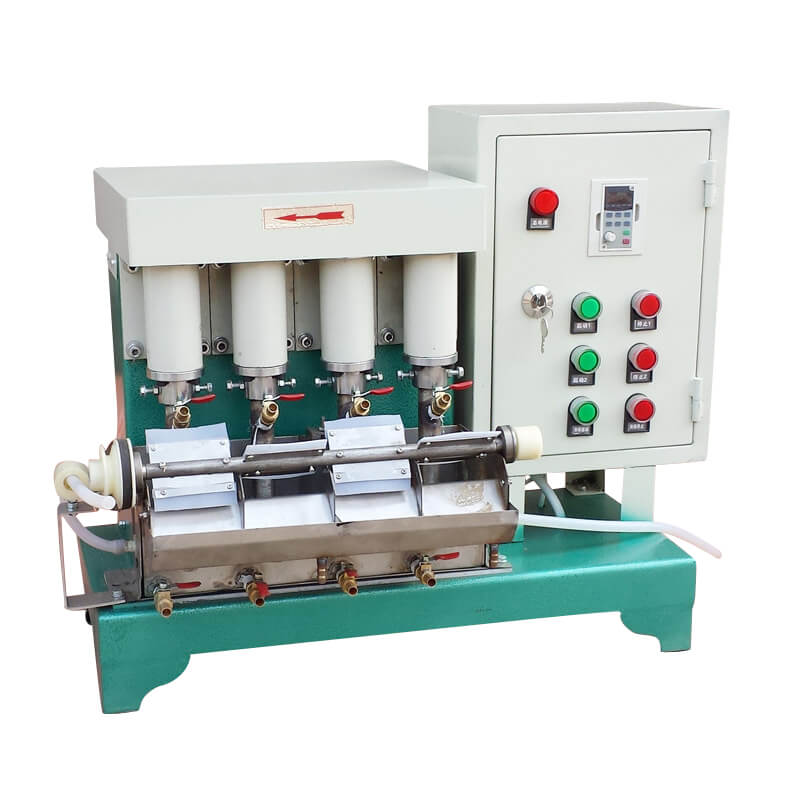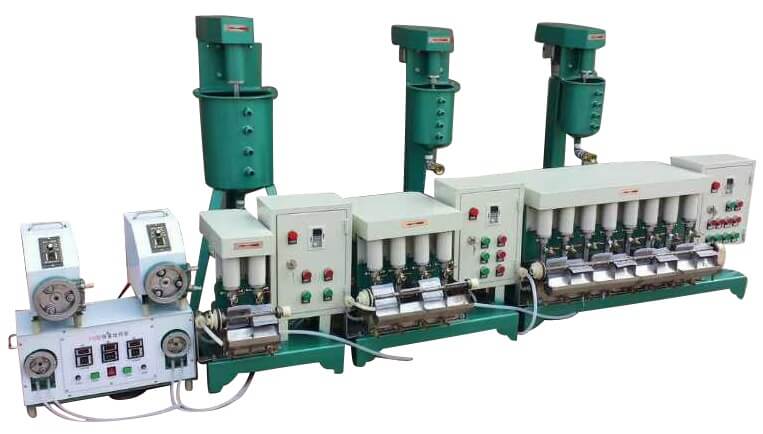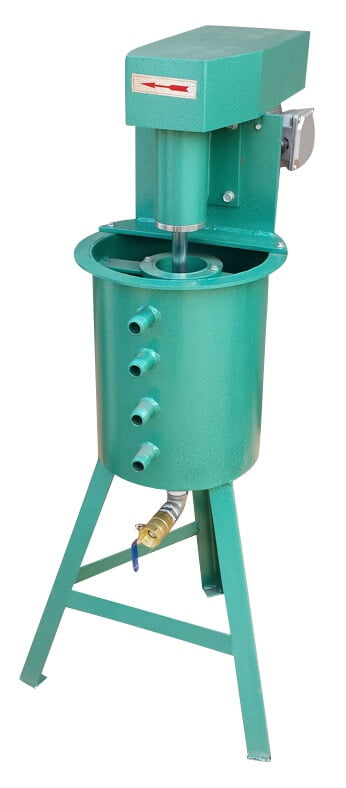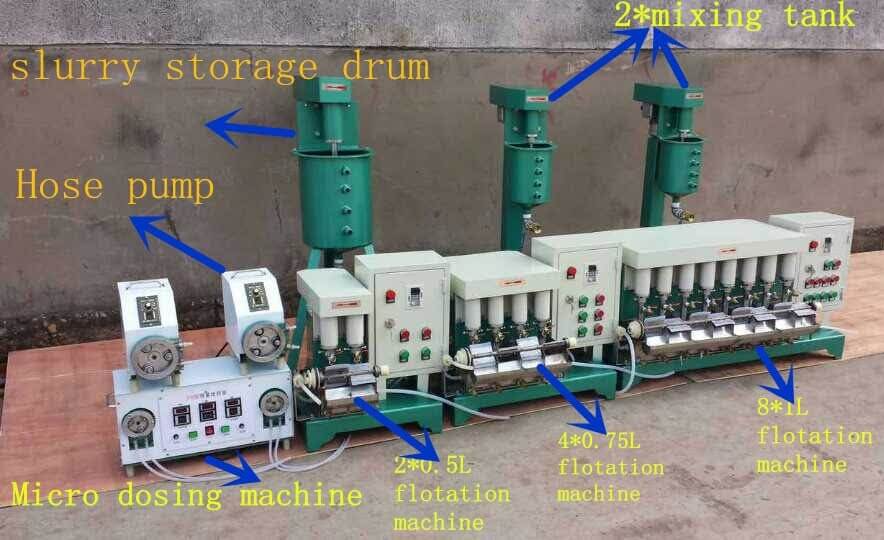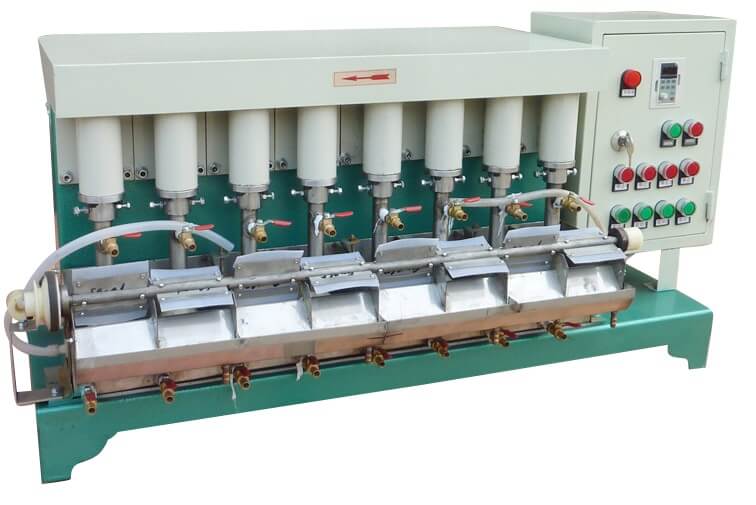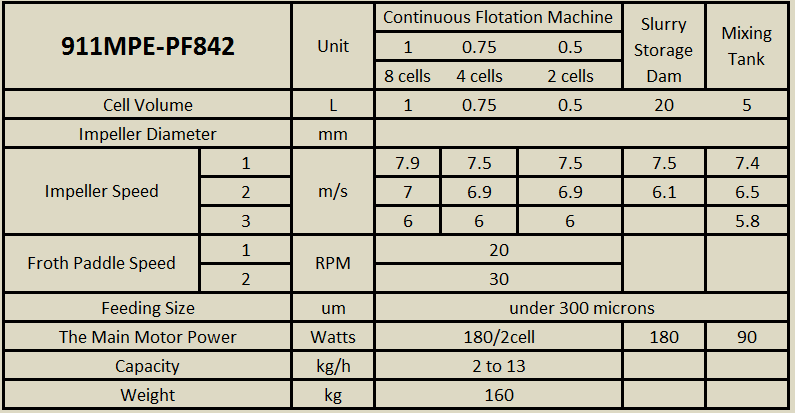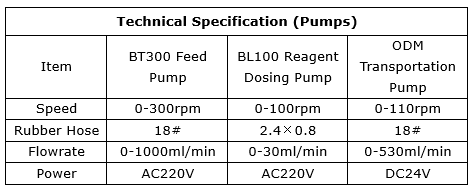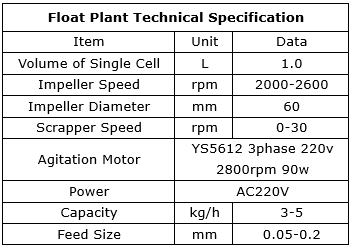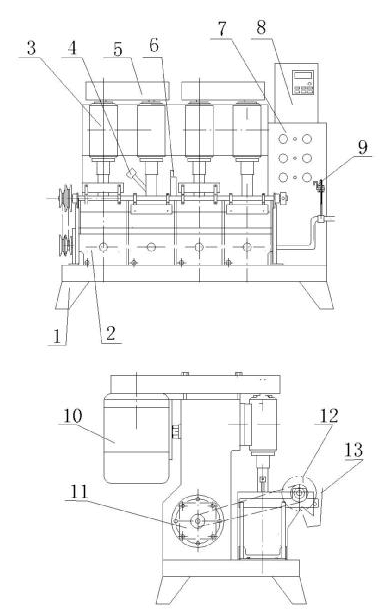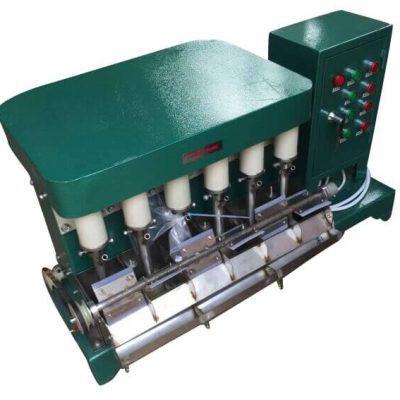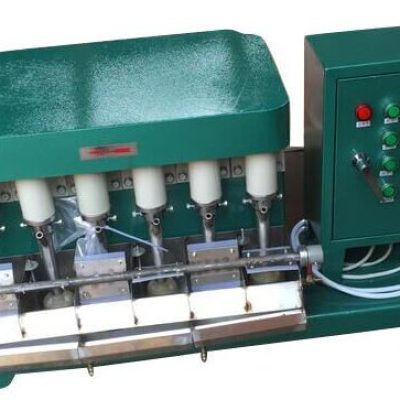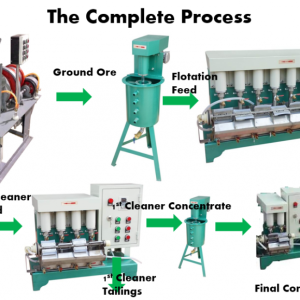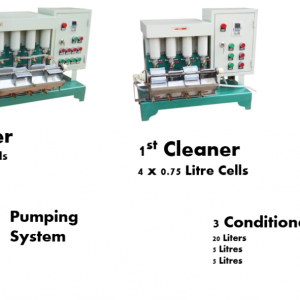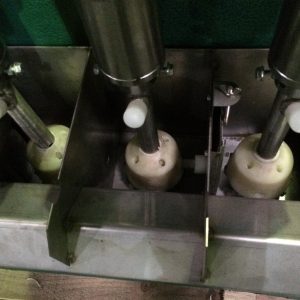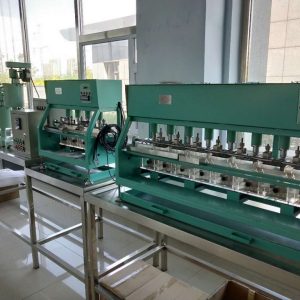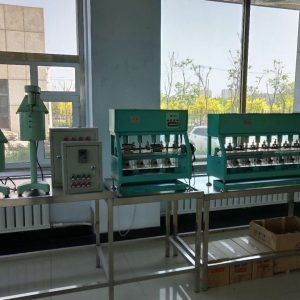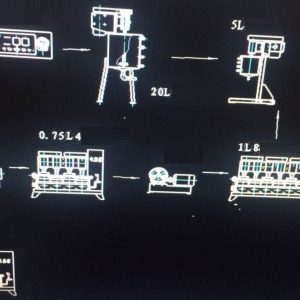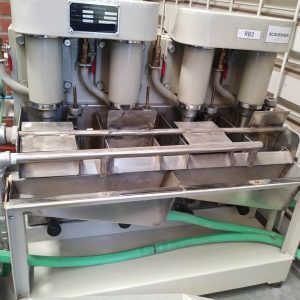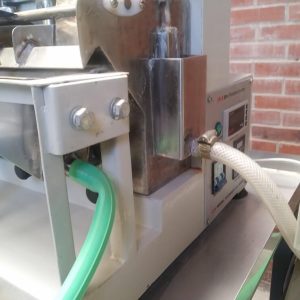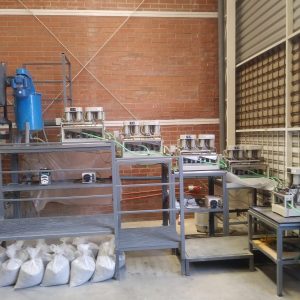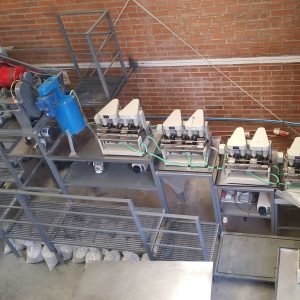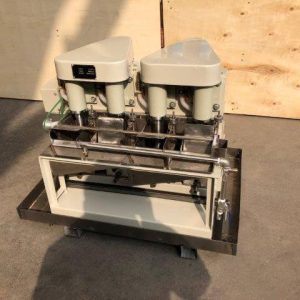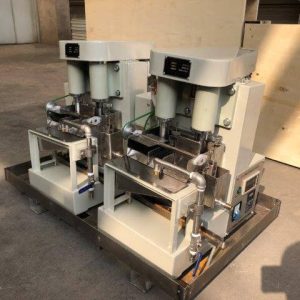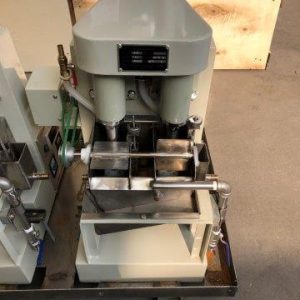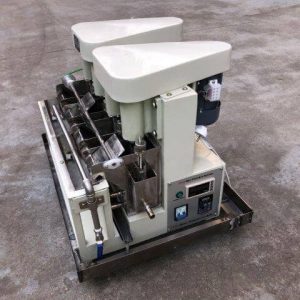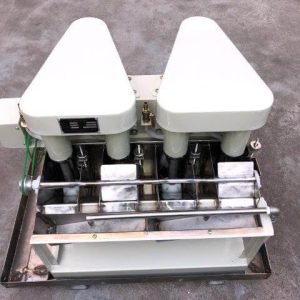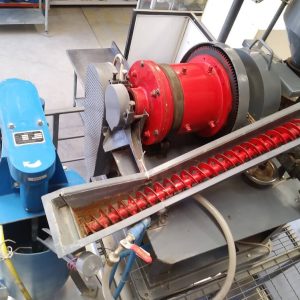To address the limitations of the band scale test, and the high cost of the conventional pilot plant, 911metallurgist.com has developed an innovative solution, called the Mini Flotation Pilot Plant. The Mini Flotation Pilot Plant or MFPP produces the same type of engineering data as the conventional plant, but at a fraction of the operating costs, since the MFPP requires a relatively small amount of sample ore and minimal personnel to operate.
The Mini Flotation Pilot Plant permits flotation testing with continuous flows, similar to traditional pilot plants. But is designed to make use from samples obtained from exploration drilling campaigns. Modular in design, the heart of the MFPP is comprised of: the flotation module, the continuous regrind pin mill, the column flotation module and the reagent dispensing system which can have up to 16 precision chemical dosing pumps. The flotation module consists of 12 flotation cells, modelled after the standard Denver D12 laboratory cell and uses the same impeller and tank design. As well, each cell has individual level control. The products of each cell are moved to the next using peristaltic pumps.
Auxiliary components include the batch grinding mill; ergonomically designed to reduce material handling and turnaround time for grinding large samples, with a nominal capacity of up to 20kg per batch. The slurry holding tank, the Mini Flotation Pilot Plant feed tank and optional computer system for data logging and control. The scale of equipment handles feed ranges from 5-15 kilograms per hour. A high level of instrumentation is also included to permit digital logging of pilot plant data and replication of conditions from test to test.
Instrumentation includes: variable speed froth paddles, impeller speed measurement and variable speed slurry transfer pumps.
Does not include: precision reagent addition
With the Mini Flotation Pilot Plant, the ore can be subjected through the following treatment stages: grinding, rougher and scavenger flotation, regrinding of concentrate tailing streams, cleaning of reground product, scavenging of cleaner tailings, recleaning of the concentrate. Furthermore, the flexibility in arranging circuits in the MFPP means that various flow sheets can be tested. The merit of testing using either conventional Pilot Plant or Mini FlotationPilot Plant is that both these methods can test the process on a continuous basis, which is of major importance to the investor. When the two are compared, we start to see the differences. The MFPP allows for greater operational flexibility, allowing optimization for working conditions during execution.
Since the Mini Flotation Pilot Plant is designed to use samples obtained from exploration campaigns, different ore zones and blends of ore zones can be tested. The amount of ore required for testing is significantly less. For example, a conventional plant may require more than 15,000 kg of ore for a 5-day campaign. Compared to only 1,000 kg for a Mini Pilot Plant. The MFPP requires fewer personnel to run and operate, comparable to the less expensive Ben scale testing. And even though less ore is required for the Mini Flotation Pilot Plant, comparative tests performed on both methods show that the results obtained from the MFPP are comparable to that of the conventional Pilot Plant.
The Mini Flotation Pilot Plant has already been used successfully by, comparative tests performed on both methods show that the results obtained from the MFPP are comparable to that of the conventional Pilot Plant.
While providing data equivalent to conventional pilot plants, it allows mining companies to substantially reduce cost by eliminating the expenses associated with acquisition of large bulk samples, reduced time to make decisions by simplifying sample acquisition, reduce risk by having the ability to do more testing to assess or variability through using a variety of samples obtained from an exploration program. Minimize environmental impact, since extracting large amounts of ore is not required.
Given today’s need for quick decisions, tighter exploration budgets, higher confidence in production performance estimates and environmentally-friendly operations, the Mini Flotation Pilot Plant is destined to be the future for mineral processing plant design.
911MPED50KPP DELUXE FLOTATION PILOT PLANT
Our deluxe mini-flotation pilot plant can process in the range of 5 to 15 Kilos/hours our your representative sample. After completion of open-circuit or locked-cycle flotation tests, use the metallurgical parameters to better please your banker or
This flotation machines are self-aspirated mechanical type but do allow for the injection of a flotation gas, as required (nitrogen or pressured air). Process non-ferrous or ferrous metals as you wish.
The unit is equipped with wear gate for pulp level control. The agitation system adopts variable frequency speed control technology, seamless speed regulation of impeller and digital display.



